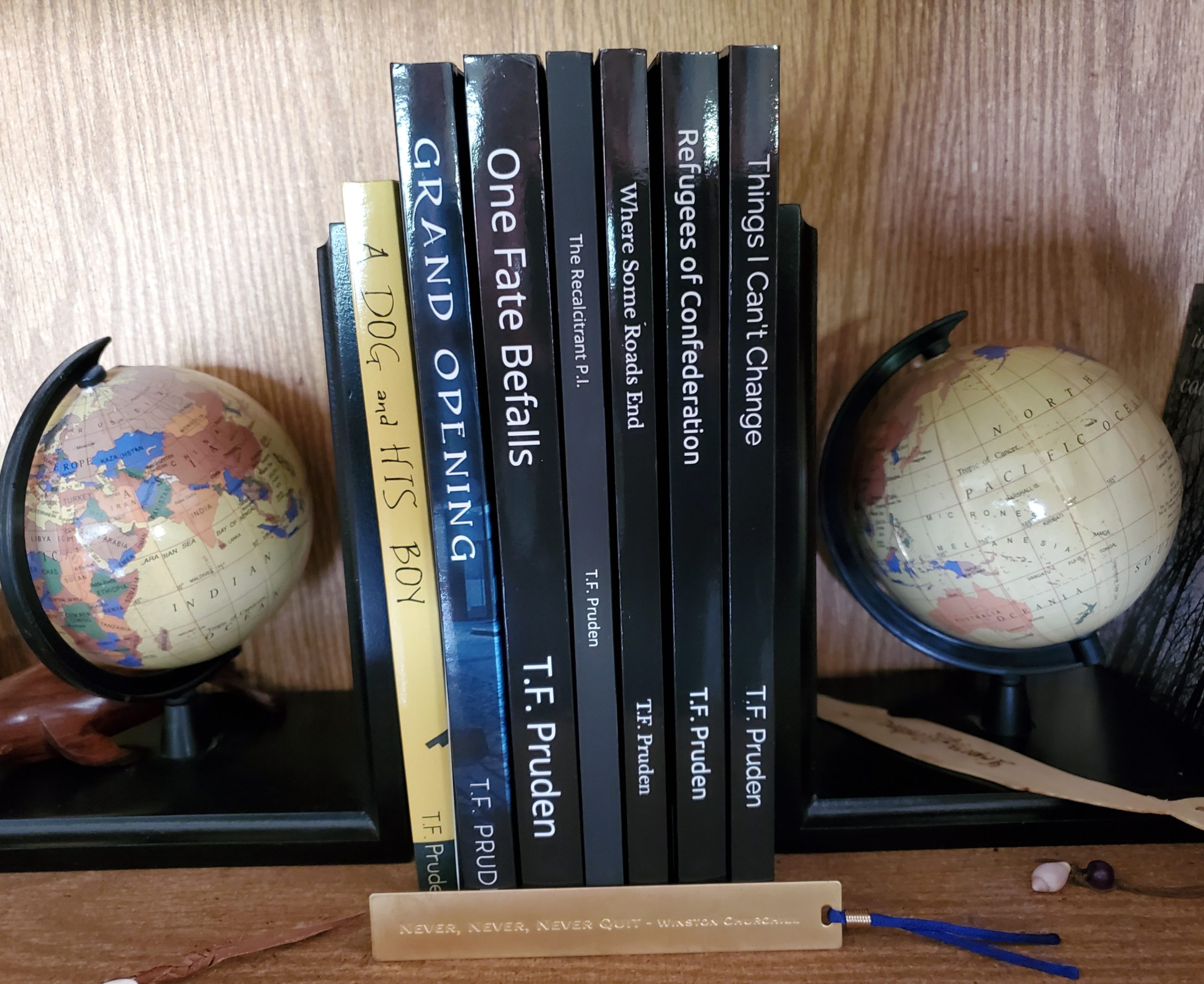Hello and welcome, reader. As ever, it’s my pleasure to have you join me here. For here, as best I can manage it, respect and tolerance govern the ideas shared between us, whatever our differences. I further limit these missives to career news, aspects of the craft, and what passes for humour in these parts. […]
The tough sell.
- Post author By tfprudenthewriter
- Post date
- Categories In On Writing
- No Comments on The tough sell.
